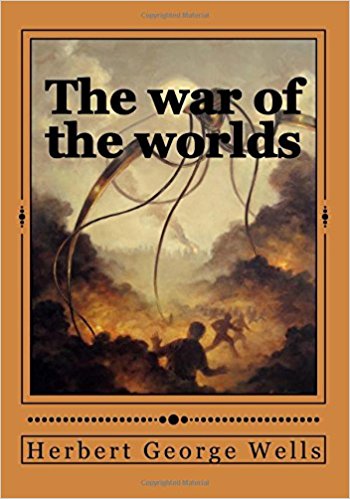

This is mainly because the mainly linear plot is told by one person. Whereas a more modern book would build on the history of the Martians, create sub-plots and expand the list of main characters, as indeed some of the other versions have done, the original is surprisingly, and pleasantly, succinct. The book is honed to just ‘the important stuff’. It is still eminently readable, which is why in part I think the book has never gone out of print. Though it can’t be regarded as modern, its vocabulary is not as dense and difficult to read and understand by readers in the 21st century as some of its contemporaries. What surprises me most, even now, is how accessible the book is. So: what is it that keeps me reading a book over one hundred years old? Nearly forty years on, I’m still reading the genre and still reading Wells, especially the two novels that got me started. I was hooked, and The War of the Worlds was a major reason for it. The Time Machine and War of the Worlds were still my favourite Wells novels, though I had expanded my reading list to Clarke, Heinlein and Asimov. By the age of fourteen I had read (and reread) all of Wells’ ‘scientifictions’ – The Invisible Man, Food of the Gods, Days of the Comet and so on. I was amazed by the concepts of alien invasion and time travel and this led to me reading the text versions.

As a youngster of about seven or eight, in the early 1970’s, I first encountered Herbert George’s books through George Pal’s movie versions of The Time Machine (1960) and War of the Worlds (1953) when shown on British national television. People don’t read it as often, because they know the other versions and therefore feel they don’t need to read it. Ironically, I think that in some ways this universal presence may have meant that the novel has become less-known than it should. Even those not fans of the genre know the story of this one. Multiple film versions, television programmes, audio versions, comics, musicals and radio shows, including the infamous Orson Welles Mercury broadcast on Halloween in 1938, have kept the plot, at least in general terms, in the public zeitgeist. But even those may not be as well known as The War of the Worlds. Some, such as Brian Aldiss, would suggest Mary Shelley’s Frankenstein (1818). Perhaps HG Wells’ earlier science-fiction romance, The Time Machine, published in 1895, might be close, or Jules Verne’s 20 000 Leagues Under the Sea, published in 1870, may match it in terms of the inspiration it created, both then and now. In Science Fiction there can be few other books that have been so important. “ Yet across the gulf of space, minds that are to our minds as ours are to those of the beasts that perish, intellects vast and cool and unsympathetic, regarded this earth with envious eyes, and slowly and surely drew their plans against us.” (Chapter 1)


 0 kommentar(er)
0 kommentar(er)
